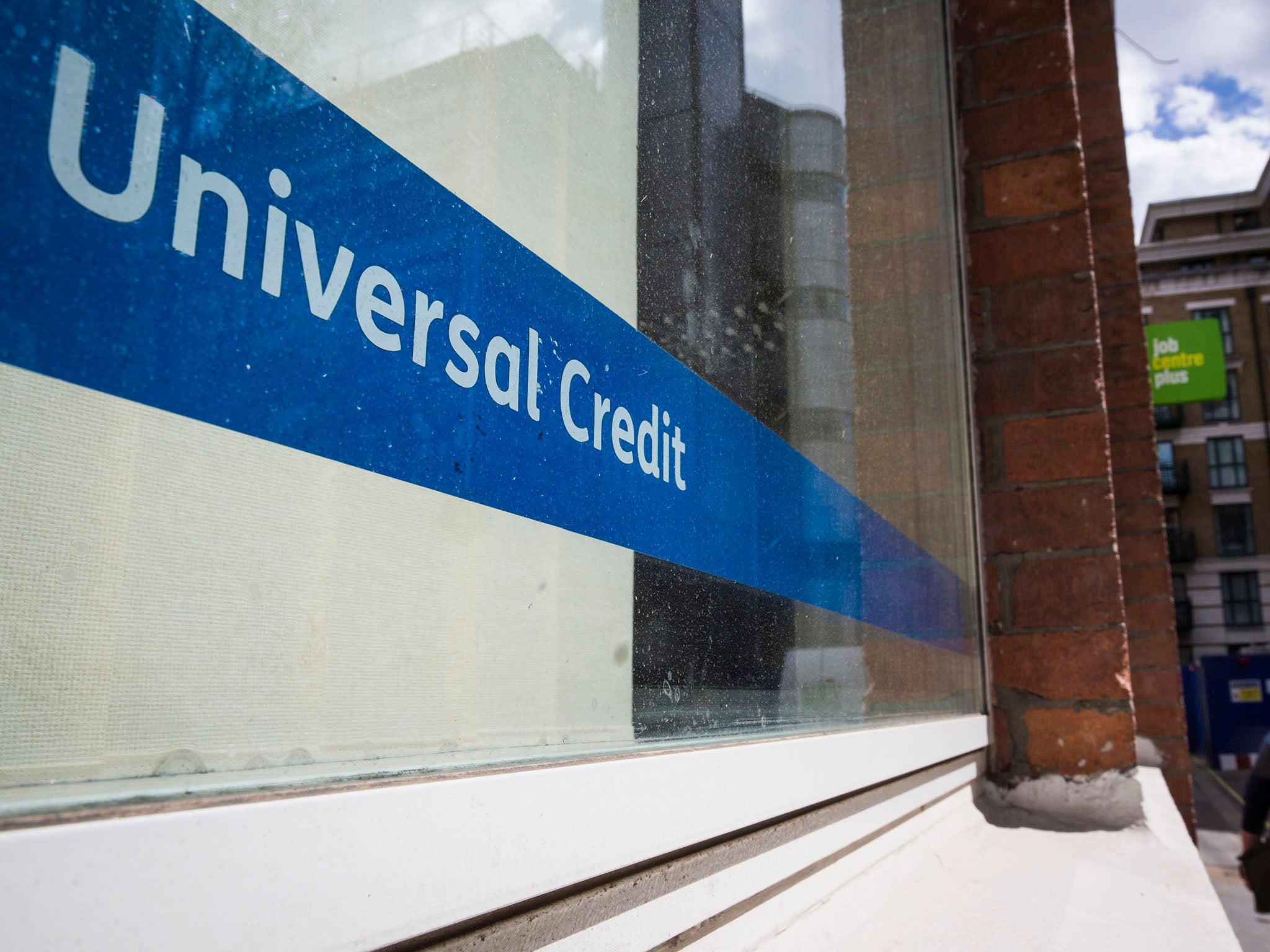Coronavirus: New universal credit claimants having to skip meals and sell possessions, charities warn
Five-week wait for benefit ‘adding more turbulence’ to lives of people who have fallen into financial hardship due to pandemic

Your support helps us to tell the story
From reproductive rights to climate change to Big Tech, The Independent is on the ground when the story is developing. Whether it's investigating the financials of Elon Musk's pro-Trump PAC or producing our latest documentary, 'The A Word', which shines a light on the American women fighting for reproductive rights, we know how important it is to parse out the facts from the messaging.
At such a critical moment in US history, we need reporters on the ground. Your donation allows us to keep sending journalists to speak to both sides of the story.
The Independent is trusted by Americans across the entire political spectrum. And unlike many other quality news outlets, we choose not to lock Americans out of our reporting and analysis with paywalls. We believe quality journalism should be available to everyone, paid for by those who can afford it.
Your support makes all the difference.People who have applied for universal credit after seeing a drop in their income due to coronavirus are skipping meals and selling their possessions because of the controversial five-week wait for the benefit to kick in, charities have warned.
New research by Citizens Advice found more than half of new universal credit claimants surveyed had faced hardship waiting for their first payment, with some taking drastic steps to “scrape by” because they were afraid to take out a government loan.
Frontline advisers at the charity, which has supported almost 90,000 people with universal credit issues since lockdown began in March, said they had seen people eating less and borrowing money from family members while they waited for money to come through.
Nearly 3 million people have made a claim for universal credit since mid-March, with one in five adults in Britain having applied or planned to apply for benefits as a result of the coronavirus outbreak. The figure rose to more than three-fifths among those on zero-hours contracts.
More than 1 million advance payments – which claimants can apply for during the five-week wait, but which they must start paying back once they receive their first payment – have been granted by the Department for Work and Pensions (DWP) since lockdown began.
However, many claimants avoid the loans because they want to avoid getting into debt.
Speaking to the Work and Pensions Committee during a hearing about the issue on Wednesday morning, Emma Revie, chief executive of the Trussell Trust, which saw an almost 90-per-cent increase in the number of people coming to food banks during the first two weeks of lockdown, said the system was failing new claimants.
“The reality is if you have lost your job suddenly and encountered a crisis like the pandemic is showing us, people don’t necessarily have the reserves there to tide them over for a week or two while things are sorted out, and certainly not through a five-week wait period,” she said.
“We need to ensure our social security system, which is the safety net we rely on to catch us when things like that hit us, is fit for purpose, and one of the key components of that is it can respond quickly to catch people and stop them falling into destitution and having to come to food banks.”
Iain Porter, policy manager at the Joseph Rowntree Foundation, said: “Universal credit does have potential to be that anchor against people falling into hardship, but some of the design flaws – and the initial wait for the first payment is one of the big flaws – means that at that transition point when people are most vulnerable, the system is not working and is actually adding more turbulence at that point.”
Jennifer Harrison, head of policy and public affairs at the Changing Lives charity, said there were already considerable challenges facing their clients on universal credit before the Covid-19 crisis, but that they had become “more acute” during the lockdown period, largely due to the “massive reduction” in face-to-face contact.
“Many of the people we support end up waiting longer than the five weeks to get their payments anyway, and that’s usually because they are very digitally excluded,” she added. “That makes it more difficult in the first place, but because we now aren’t able to do things like accompany them to appointments and provide them with that wider network of support, it’s even more difficult for them.”
Citizens Advice believes further measures to shore up universal credit are needed as redundancies increase and people who have been ineligible for the government’s support schemes run down their savings.
Dame Gillian Guy, chief executive of the charity, said: “Universal credit has been a hugely important safety net during this crisis, but it’s simply not right that some end up skipping meals, borrowing from family members or falling behind on bills while they wait for money to come through.
“The government has said that it is too complicated to change the payment process for universal credit. Yet tackling this technical challenge is needed to reduce the human cost of the five-week wait."
A DWP spokesperson said: “With universal credit no one has to wait five weeks for money as urgent payments are available. We recognise this is a difficult time for people on low incomes and we’ve injected more than £6.5bn into the welfare system – including increasing UC by up to £1,040 a year – to help those in most need.
“Repayments of advances are made over 12 months and deductions are capped. More than 900,000 urgent payments have been made to claimants, landing in their accounts within days of a request, since mid-March.”
Join our commenting forum
Join thought-provoking conversations, follow other Independent readers and see their replies
Comments